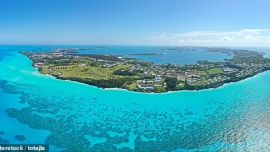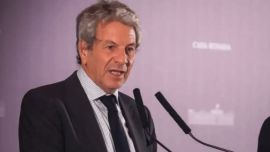For the second time running (thinking back to the Summit of the Americas in mid-2022), a hemispheric conclave seemed more concerned with who was missing from the table at the VII Summit of the Community of Latin American and Caribbean States (CELAC, in its Spanish acronym) than what was to be discussed – which was not for lack of issues. Quite apart from the determination of summit host President Alberto Fernández to take full advantage of his close friend Luiz Inácio Lula da Silva’s return to power in Latin America’s biggest country to place regional integration on a new footing in the new world of nearshoring, Peru’s painfully resisted transition deserved far more attention than the passing criticism of the repression which only scraped the surface of an intractable problem.
Unsurprisingly the new Peruvian President Dina Boluarte (recognised by Argentina at least, if not by much of the region) did not attend and nor did Ecuador’s Guillermo Lasso (peeved by the insistence of the Frente de Todos government hosting this summit that the corruption convictions in his country are lawfare) and nor did Mexico’s Andrés ManueI López Obrador budge from his country (something he takes a peculiar pride in never doing, not even when only 200 kilometres from his border like last year’s Summit of the Americas in Los Angeles) but the biggest news splash was Venezuelan President Nicolás Maduro reversing his decision to come. This should have come as no surprise after 14 of his compatriots flying a Mahan/Emtrasur freight aircraft were detained here for more than 18 weeks last year but it confirmed that Maduro’s reprieve in the past year thanks to the global fuel shortages caused by the war in Ukraine is only partial while he continues to be investigated for crimes against humanity in The Hague. Needless to say, the presidential indifference to these aspects of his “more than invited” guest has given the opposition plenty of ammunition.
Denied Maduro, President Fernández at least had two complete days of Lula – a treat not shared with Vice-President Cristina Fernández de Kirchner, who did not make the photo-op any easier with her insistence that if the mountain won’t come to Muhammad, then Muhammad must go to the mountain in the form of her Senate office (given the way corruption issues interrupted his sway in Brazil along with his own prison experience, it is perhaps also not surprising that Lula should give a leader convicted of graft only last month a wide berth, for all her political clout). Regional integration was certainly in the air although at times the presidential approach seems to be premised on a Brazilian generosity born out of his genuine friendship with Lula – the request that Brazil’s BNDES development bank finance the second leg of the Néstor Kirchner gas pipeline or common currency schemes somehow enabling him to tap the Brazilian Central Bank’s bulging reserves of over US$350 billion. Yet such wishful thinking might well be underestimating both Lula’s patriotism and the degree to which he is hamstrung by a Congress dominated by the opposition – both Lula’s slender victory margin and the shock of a rightist mob overrunning Brasilia in the first weekend of his presidency would induce him to caution. But rather than express either enthusiasm or scepticism over last week’s integration proposals, it probably would be fairest to say that these are still very early days and that the two presidents are at opposite ends of their terms.
The CELAC summit came and went without leaving anything in the way of a footprint – joint statements leaning vaguely towards the general centre-left thrust of this grouping with Uruguay’s Luis Lacalle Pou inevitably striking a dissonant note but no concrete advances of any kind. In midweek the news was already moving on with the summit quickly forgotten – the ongoing Fernando Báez Sosa trial as far as public opinion was concerned while government priorities switched to the Congress committee onslaught against the Supreme Court with the papal alert on inflation and poverty (rising from five percent to half the population since he finished school, said the pontiff) adding a new controversy. Perhaps it was worth giving this summit a miss for reasons other than offered by Maduro.





















Comments